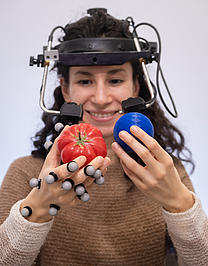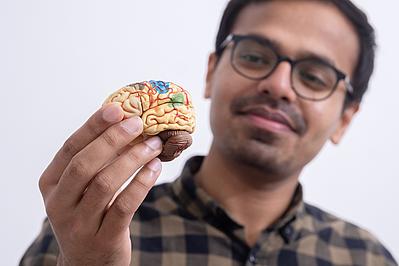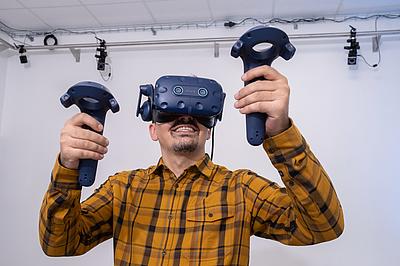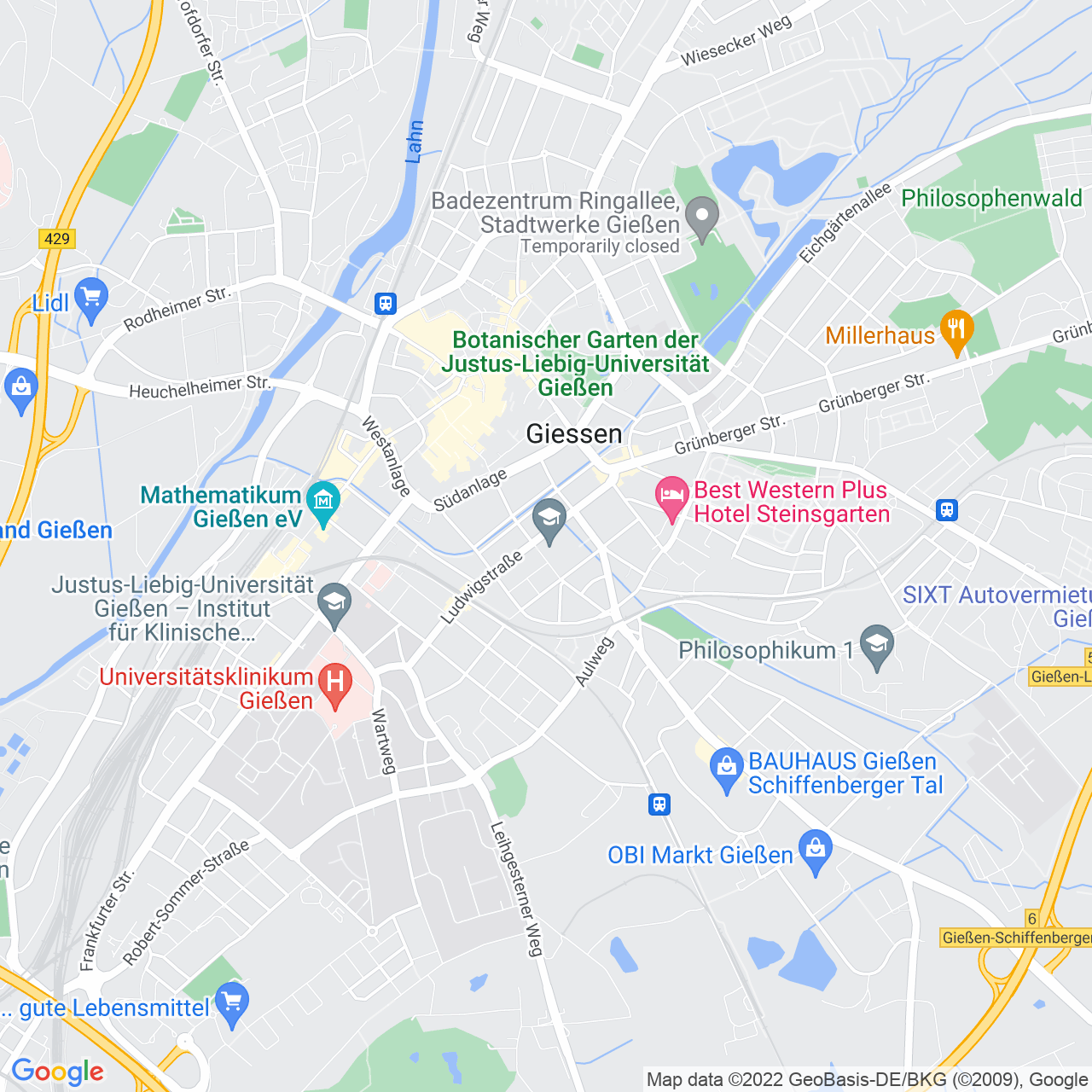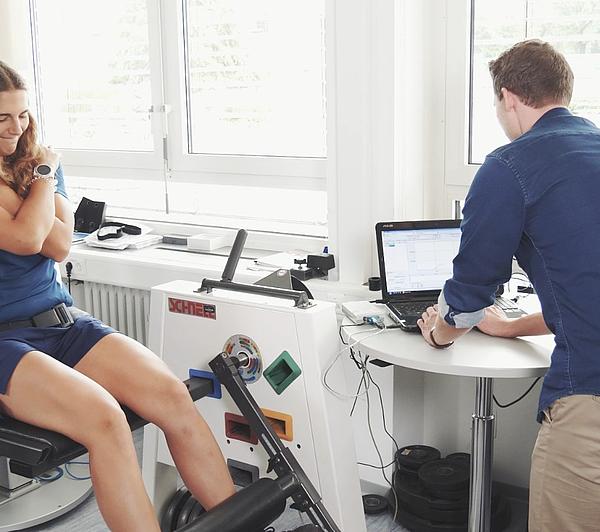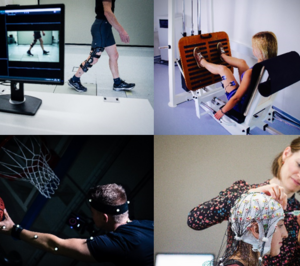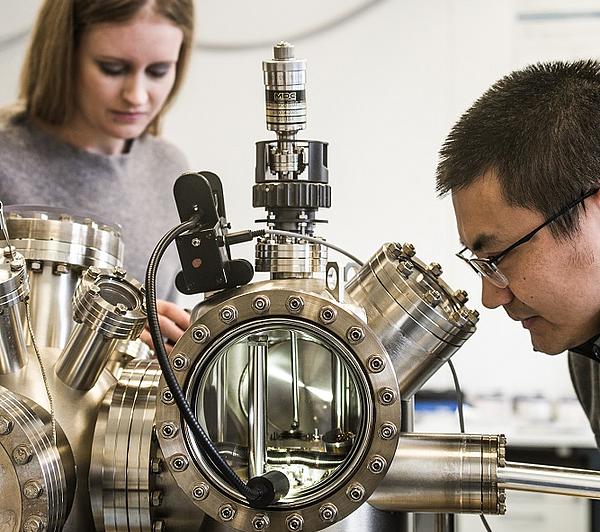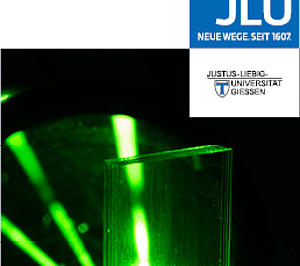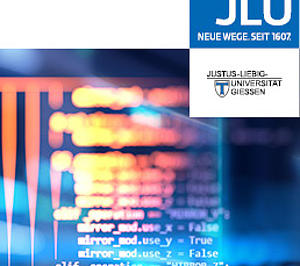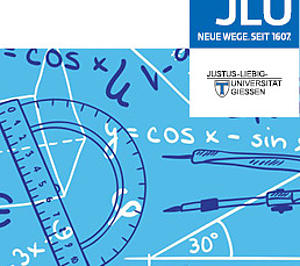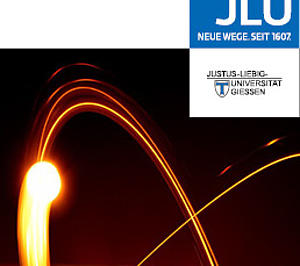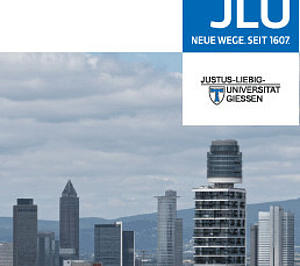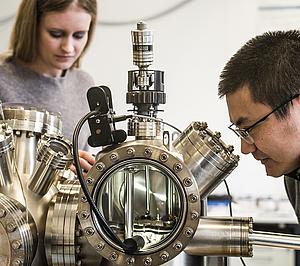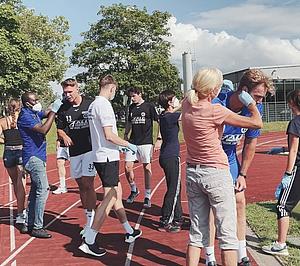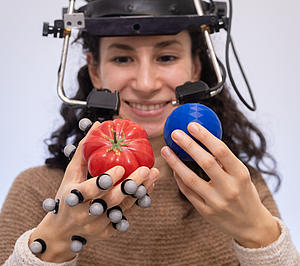Understanding human perception and behavior
Do you want to research the fundamentals of human perception and behavior? Do you want to learn experimental and neuroscience methods? If you are signing up for this Master’s program, you will participate in an exciting program with a strong research focus, international orientation, and excellent job prospects.
Understanding human perception and behavior is one of the greatest challenges facing science. Fueled by recent advances in artificial intelligence, there is a rapidly growing need in numerous application areas for expertise in methods and models addressing this topic.
Mind, Brain and Behavior is a research-oriented, international study program taught in English language at the University of Giessen, Germany. The program is designed to provide essential skills for a career in academia or industry in the fields of psychology, cognitive neuroscience or behavioral science. By combining theoretical and hands-on methods courses, the Master’s program is preparing students for jobs for example in human-machine interface design, virtual reality, behavioral measurement, autonomous driving, cognitive robotics, artificial intelligence, machine learning, and other domains. At the core of these different fields lies both a theoretical and practical mastery of relevant experimental and modelling methods, for which graduates of the program will be optimally prepared.
Occupational fields
Potential employers include universities with advanced graduate programs (PhD) and other research institutions, as well as some of the largest and fastest-growing high-tech and internet companies in the world in areas such as:
- human-machine interface design
- behavioral measurement
- virtual reality
- autonomous driving
- cognitive robotics
- artificial intelligence and machine learning
Excellence in research
The study program has a strong research background. Lecturers include the renowned scientists Katharina Dobs, Katja Dörschner-Boyaci, Katja Fiehler, Roland W. Fleming, Karl Gegenfurtner, Benjamin de Haas, Martin N. Hebart, Daniel Kaiser, and Gudrun Schwarzer. Also, the University of Giessen is one of only a few institutions in Germany to have a Collaborative Research Centre in Psychology (Cardinal Mechanisms of Perception) and is consistently ranked among the top places for vision science worldwide. We have a network of close collaboration partners in academia both nationally (e.g., University of Marburg, Technical University of Darmstadt) and internationally (e.g., York University in Toronto, Western University in London, Ontario, and Queen's University in Kingston).
Strong partners in industry
Our industry partners are interested in core topics of the study program, including virtual reality, electroencephalography, eye movements and material perception, and include for example Meta Reality Labs, MENTALAB, VPixx Technologies, SCHLENK, Thomas RECORDING, and SR Research.
Composition of the study program
The study program has a total duration of four semesters and starts each winter semester (October). It is characterized by a combination of theory and application modules. In the theory modules, experts with strong research background are teaching selected topics whereas in the application modules, the program provides hands-on training for many empirical, experimental methods from behavioral and cognitive neuroscience.
Theoretical and hands-on courses
Specifically, theoretical courses cover multi-sensory perception, action and cognition, and their development during infancy and childhood, as well as the perception of objects, color and materials. Hands-on courses cover functional magnetic resonance imaging, electroencephalography, measurements of eye and body movements, computer graphics, virtual reality, computational modelling and machine learning.
In total, the program features four theory modules, four application modules, a 9-week internship, two elective modules, and the Master’s thesis. The internship and elective modules will help students to shape their professional profile according to their preferences and needs. Elective modules for example include Quantitative Foundations of Artificial Intelligence, Creativity and Entrepreneurship, or Technology and Innovation Management.
More details on all modules and a study schedule can be found here >
Requirements and application
Enrolment starts at the beginning of June; the application deadline is July 15.
To apply for the study program, you need to have completed a Bachelor’s degree in Behavioral Sciences, Biology, Cognitive Sciences, Computer Science, Data Science, Linguistics, Movement Sciences, Neuroscience, Psychology or Physics. For other Bachelor’s degrees, the examination board will individually check whether they meet the entry requirements.
The study program is taught in English. Your English language proficiency should therefore correspond to level B2 of the Common European Framework of Reference for Languages. Although level C1 is considered as helpful, it is not mandatory. The proficiency level can be certified as follows:
- School reports: English language skills must be documented over at least 6 years, up to the degree which entitles university entrance;
- or: One of the following language tests:
- IELTS, minimum grade 5.5,
- TOEFL (iBT, 0-120 points), minimum 72 points,
- TOEFL (ITP Level 1, 310-677 points), minimum 543 points,
- TOEFL (pBT, 310-677 points), minimum 543 points,
- PTE Academic (10-90 points), minimum 75 points
- TOEIC (10-990 points), minimum 784 points,
- telc, B2 certificate,
- UNIcert II,
- Cambridge IGCSE, B2;
- or: Proof of obtaining a local higher education entrance qualification in one of the following countries: Australia, Ireland, Canada, New Zealand, USA, United Kingdom, South Africa;
- or: Proof of a Bachelor’s degree in English in one of the following countries: Australia, Ireland, Canada, New Zealand, USA, United Kingdom, South Africa.
Documents
You have to provide the following documents:
- Bachelor certificate (see above).
- Transcript of Records.
- Proof of English proficiency (see above).
- Motivation letter.
- Additional qualifications (if applicable):
- Practical experience in the field of neuroscience or behavioral science (training or job certificate);
- Internship in the field of neuroscience or behavioral science (minimum of 8 weeks; only if done in addition the completed course of study);
- Completion of a specialized or advanced module with a focus on behavioral science or neuroscience (minimum of 9 credit points according to ECTS).
- Note that you need certified translations of all documents which are not in English or German language.
How to apply?
Please visit the following homepage for deadlines and other details: https://www.uni-giessen.de/studium/master/mbb
All applicants with a foreign university entrance certificate or a foreign Bachelor’s degree must submit their application via: https://www.uni-assist.de/en/
All applicants with a German university entrance certificate or a German Bachelor’s degree must submit their application via: https://www.uni-giessen.de/studium/bewerbung/master (website in German)
No study fees are charged for this study program. However, students have to pay about 300 EUR per semester for administration and a public transport ticket.
Justus-Liebig-University Giessen (JLU)
JLU was founded in 1607 and covers almost the entire spectrum of humanities and natural sciences: https://www.youtube.com/watch?v=3t8QVZ6Q5C4
Since 2006, research at JLU has been continuously funded in the Excellence Initiative or Excellence Strategy of the German federal and state governments. The study program Mind, Brain and Behavior is integrated into the research focus on perception and behavior at JLU as well as in the Center for Mind, Brain and Behavior, which is a joint institution of JLU and nearby Marburg University.
The city of Giessen
Giessen is a small German city located 70 km north of Frankfurt. With about 90,000 inhabitants and 45,000 students, Giessen has the highest student density in Germany. Accordingly, it offers a rich cultural program and nightlife. Also, its scenic low mountain range location in the valley of the river Lahn contributes to its high recreational and leisure value.

